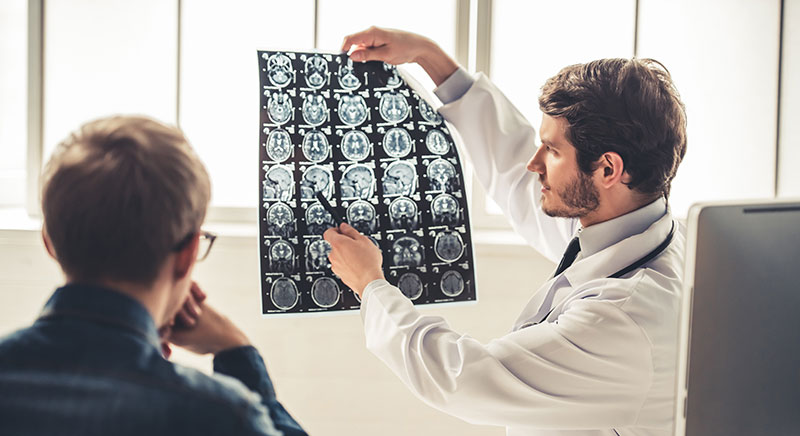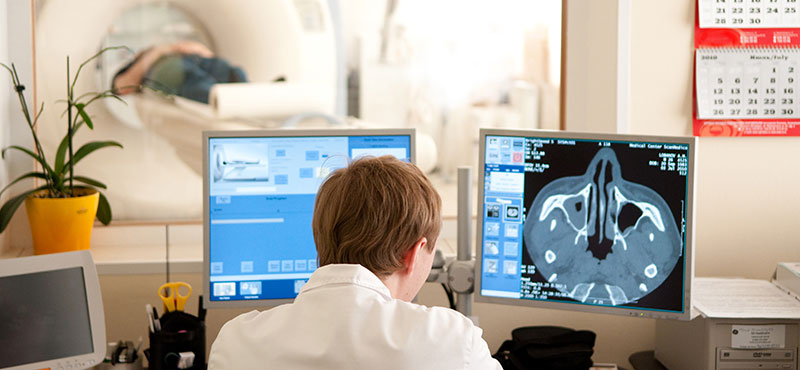Restore Your Brain, Change Your Life
At FHE Health, we offer cutting-edge interventions that are proven to speed recovery from addiction and mental health disorders. Our Neuroscience-Based Treatments are one example. We firmly believe that any substance use or mental health disorder diagnosis should be quantifiable and that the recommended treatments for our patients have been proven effective.
EEG Brain Mapping
An all-inclusive, computer-generated analysis of your brain’s electrical activity in order to pinpoint areas of dysfunction and get to the root of any underlying problem. Learn More
Neurostimulation Therapy
We offer a series of electrical, magnetic, and vibrational stimulation therapies designed to encourage neural repair and combat neural dysfunction, such as withdrawal. Learn More
NeuroFeedback Training
Neurofeedback Training retrains the brain for optimal health and recovery in the aftermath of drug and alcohol damage and other mental health issues. Learn More
Why Neuroscience-Based Treatments?
For almost every illness or medical condition, there are measures that are used to make a diagnosis, such as x-rays, blood tests, and electrocardiograms. At FHE Health, behavioral health treatment is no different. We apply the latest innovations in neuroscience to identify and treat addiction and mental illness at the brain level, so that our patients can experience faster resolution of symptoms and more comprehensive brain health.
While other treatment centers diagnose based only the description of symptoms, also known as “guesswork,” we utilize a series of biometrics, based on brain imaging, genetic blood testing, and other advanced protocols to provide our patients with a full interpretation of their condition. These biometrics and diagnostic tools are used to scientifically track the progression of treatment and even predict relapses. Using state-of-the-art systems, we are able to personalize each patients’ treatment plan to meet their specific needs and desired outcomes.
Types of Neuroscience-Based Treatments That We Offer
We use the following neuroscience-based technologies in the assessment, diagnosis, and treatment of mental health and substance use disorders.
Assessment and Diagnosis Tools
Quantitative EEG (qEEG) – Treatment begins with an electrical measurement and analysis of the brain known as a electroencephalogram or EEG. Every patient gets this initial assessment, a scientifically scored measurement and recording of electrical activity in the brain.
Electrodes on the scalp record tiny electrical charges from brainwave activity, which a computer visually represents on a screen. The resulting “map” allows us to analyze key metrics of health and function such as brainwave activity, brain symmetry, and the stability of brainwave relationships. We can then identify areas of dysregulated function and prescribe a course of treatment to address the root problem(s).
Event-related potentials (ERPs) – EEGs help assess brain function when the brain is standing still. ERPs, a newer breakthrough in computational neuroscience analysis, let us evaluate the brain when it is in action. ERPs are EEGs. The difference is that ERPs record the brain’s response to visual or auditory stimuli and use a machine learning algorithm to analyze the data with greater accuracy. That ensures a more precise and in-depth analysis of brain issues that may need to be treated.
Specialized Neuroscience Treatments Available at FHE Health
Transcranial Vagus Nerve Stimulation (tVNS) – Vagus nerve stimulation refers to the safe, non-invasive delivery of tiny electrical pulses to the vagus nerve. This major nerve (10th cranial) connecting the brain to the heart, lungs, and digestive system has several key functions: It regulates mood, the body’s stress response, levels of feel-good neurotransmitters, and even reward pathways in the brain associated with addiction.
In the last case, tVNS has shown promise at reducing cravings and relapse by targeting brain regions involved in addiction. tVNS also appears to play a part in supporting the brain’s innate capacity for self-repair. tVNS helps to reduce sympathetic activation or what is known as “dorsal freeze” in patients who suffer from PTSD. Lastly, tVNS helps to improve sleep patterns in people who suffer from insomnia. These critical functions help to explain how VNS, when combined with neurostimulation as an adjunct to medication and psychotherapy, has helped people feel better and recover more quickly.
qEEG-Guided Neurofeedback Training – This treatment “retrains” the brain to regulate those areas of greatest dysfunction revealed by the qEEG. If the individual is experiencing certain symptoms (anxiety, insomnia, etc.), we can also target the affected area of their brain and guide it to behave as a healthy brain would. This process entails teaching the brain to respond correctly to a visual stimulus on a computer screen and rewarding the brain when it performs well. As the brain learns, its activity normalizes in areas of previous dysfunction, and symptoms subside in their severity.
Neurostimulation – “Neurostimulation” refers to non-invasive and pain-free brain stimulation therapies. These utilize electrical, magnetic, and light to accelerate the brain’s self-healing. For example, electromagnetic pulses, when delivered to the brain in low intensity pulses can increase cortical blood flow and reduce inflammation in people who have suffered from a concussion or traumatic brain injury. This improved neuronal function counteracts dysregulation and encourages the healing process.
With transcranial direct-current stimulation (tDCS, tACS, tRNS) and the other types of neurostimulation that we use at FHE Health, we may prescribe them in combination with one another. We may also administer all of them together at the same time, depending on the individually developed protocols for a patient. This therapy is a form of physical rehabilitationfor the brain and can help to strengthen areas of the brain so as to increase overall levels of functionality.
Photobiomodulation – This groundbreaking tool uses light to stimulate and quicken healing at the neurocellular level. Once absorbed by the mitochondria (the “power generator” of the cell), this low-level light sets off a chain of neurochemical events that signal the brain to start repairing itself, and at a more rapid pace. The technology is designed to only deliver light of a specific wavelength (810, 850 or 1070 nanometers) and can accurately send this energy to targeted areas deep within the brain.
Heart Rate Monitoring – Heart rate monitoring provides valuable, real-time information about an individual’s physiological arousal, stress level, emotional state, and changes in these data points. The body keeps the score and the heart informs the brain to remain in a state of vigilance that can generate high levels of anxiety. By integrating heart rate data in neuroscience treatments, we are able to help patients gain greater self-awareness and self-regulation skills, increase their stress resilience, and improve their overall wellbeing. We are also able to assess their progress in treatment and ensure personalized interventions for maximum therapeutic benefit.
Bio-Bed Therapy – Through a combination of audio sounds and vibration, this comfortable, S-shaped bed works with the body’s powerful sensory systems to induce a state of deep relaxation and encourage self-regulation. This form of biofeedback helps the individual learn skills for relaxing their parasympathetic nervous system and managing their emotions.
Heart Rate Variability and Biosound/Biofeedback Monitoring – Heart rate variability (HRV) refers to the variations in time intervals between heartbeats that we can measure and improve. We often pair heart rate variability with neurofeedback training to optimize HRV patterns. This can enhance emotional regulation, attention, and mental wellbeing.
HRV can also be used with biosound/biofeedback monitoring. With biosound/biofeedback monitoring, “binaural” sounds, or recorded tones at different frequencies, and vibrational stimulation produce the same brainwave activity that occurs in the first stage of sleep. In this meditative state, the brain is more responsive to the positive affirmations that we then play via selected audio recordings. Meanwhile, by monitoring pulse and other vitals, we can measure the procedure’s efficacy at increasing a sense of mental and emotional wellbeing.
The Benefits of Neuroscience Treatments for Mental Health and Addiction
A large body of research supports the use of neuroscience-based treatments for mental health and addiction. The benefits can include reduced anxiety and depression, better sleep, a reduced stress response, improved impulse control, and relief of addiction cravings and withdrawal. These treatments can also help speed the brain’s recovery in the aftermath of substance abuse and promote healing at a deeper level to help protect against relapse. To optimize these benefits and for the best results, we use neuroscience treatments in combination with other evidence-based treatments such as medication and therapy. Learn more about our Neuroscience-Based Program.













